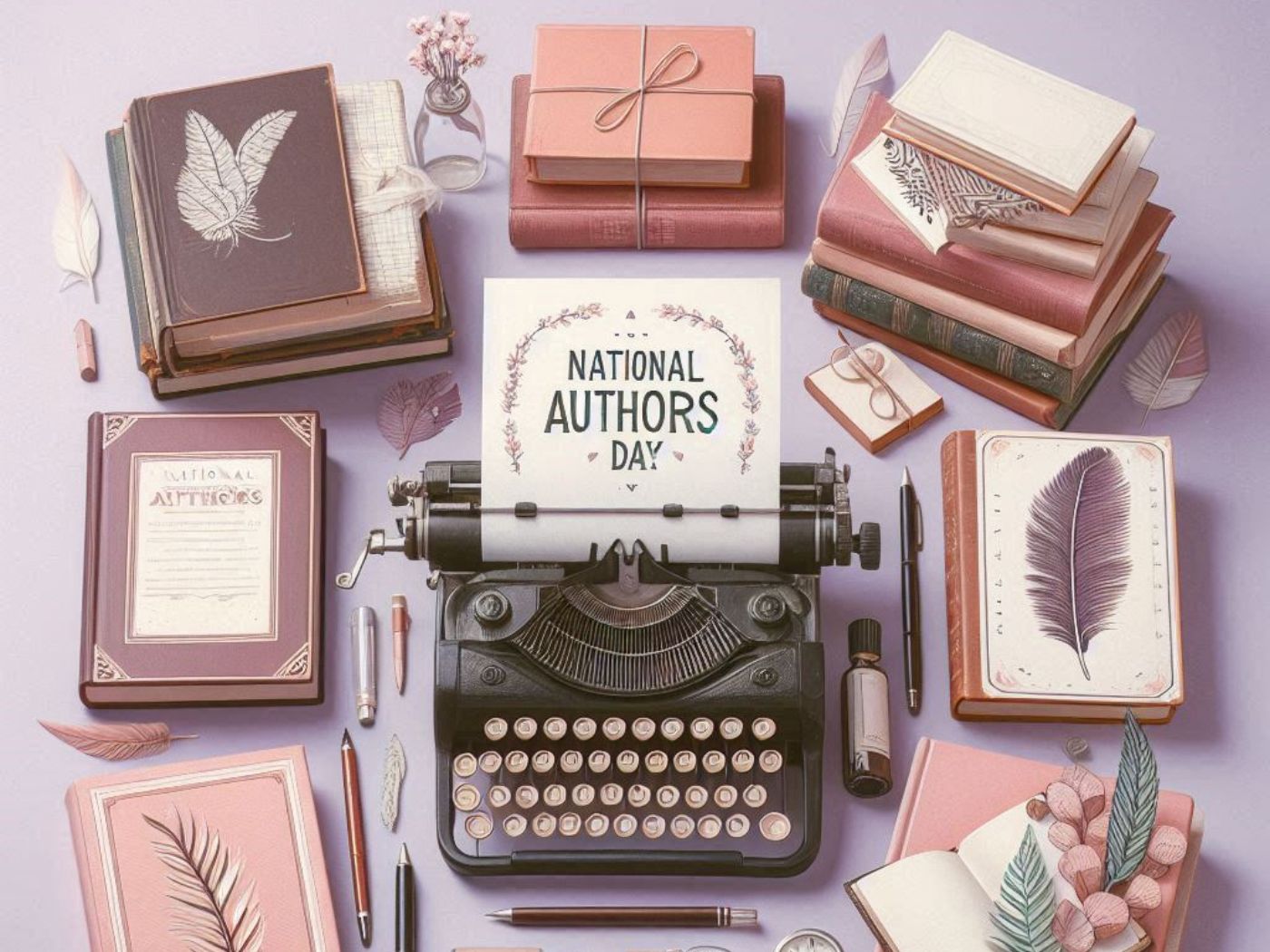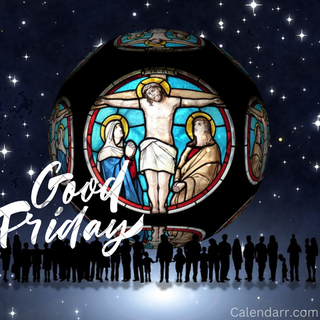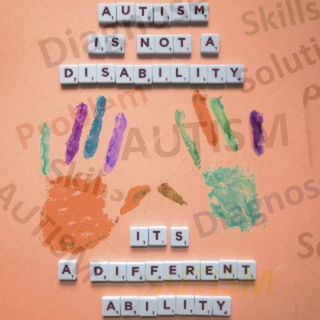- Calendar
- Calendar 2025
- November
- National Author's Day
National Author's Day
National Author's Day observed on November 1st gives us the opportunity to honor our favorite authors and their contributions to the world.
Be it novels, poetry, essays, fictions, nonfictions, or anything else, authors are one of the most important parts of the society

Origin of National Author's Day
The origin of National Author's Day is very interesting and dates back to 1928. Nellie Verne Burt McPherson, an avid reader and head of the Women's Club in Illinois, presented the idea, which quickly became popular.
She was deeply moved by the power of words and how they can transport readers to entirely different worlds. McPherson wanted to encourage society to recognize the significant influence of authors.
She wrote to author Irving Bacheller to express her appreciation and suggested that a special day should be dedicated to authors.
The Women's Club embraced the idea, and in 1949, the U.S. Department of Commerce officially recognized November 1st as National Author's Day.
The World's First Known Author: A Brief Overview
Enheduanna, regarded as the world's first known author, was an Akkadian poet who lived from 2285 to 2250 BCE. She was the daughter of Sargon of Akkad and served as the high priestess of the temple in Ur.
Her role was to blend and unify Akkadian and Sumerian religious traditions. Enheduanna's poetic works are said to have influenced people beyond her lifetime, continuing to resonate even today.
Pieces like The Exaltation of Inanna are credited with reshaping Mesopotamian theology. It's also believed that her literary innovations influenced the hymns and prayers of later cultures, including the Hebrews and early Christians.
Though her authorship is debated among scholars, Enheduanna identifies herself in her hymns. Her compositions were revered for about 2,000 years. Archaeologist Leonard Woolley further solidified her legacy when he discovered a disc engraved with her name, confirming her importance in literary history and the lasting impact she made.
The First Literary Works In History
- The world's oldest confirmed written text is said to be The Kish Tablet. It dates back to approximately 3,500 BCE and was discovered in the ancient Sumerian city of Kish, which is situated in present-day Iraq. This tablet features pictographic writing, serving as a precursor to the cuneiform script.
- The oldest known fictional story/poem in the world is the Epic of Gilgamesh, a mythic poem that dates back to the years 3000 to 2001 BCE. It is recognized as the first great literary composition, although some shorter works that predate it have also been discovered.
- The Kesh Temple Hymn is a shorter work that may be older than the Epic of Gilgamesh.
- The Instructions of Shuruppak is another brief composition that could also predate the Epic of Gilgamesh.
- The oldest known printed book is the Diamond Sutra, a Buddhist text that dates back to 868 CE.
- Rigveda, the Hindu scripture, dated to 1500 BCE, is one of the oldest known complete religious texts.
- The Gutenberg Bible is often referred to as the first book in the modern sense because it was the first to use movable print in the West. However, printing was already well-established in other regions of the world.
These examples are just the tip of the iceberg, as the history of literature is vast and deep, like the ocean. Its beauty lies in the rich cultural diversity it represents. Writing is an art form, a powerful means of expression, and it is the authors who give this art its profound meaning.
Observing National Author's Day
The best way to celebrate National Author's Day is by reading a book of your favorite author, be it a classic or a new one.
You can take it further up a notch and write a review of new and upcoming authors to show your support.
Reach out to your favorite authors through social media or email, write a letter showing gratitude for their work and how it impacted you.
This day acknowledges the dedication that goes into writing, reminding us that every cherished story starts with an author’s dream. By celebrating National Author's Day, we recognize the profound impact authors have on our lives and the literary world.

Popular Authors Across The Globe
- George Orwell: Known for his dystopian works such as 1984 and Animal Farm, his writing critiques totalitarianism and explores themes of surveillance, propaganda, and social injustice.
- R.K. Narayan: Famous for his depiction of life in small-town India, Narayan’s works, such as Malgudi Days and The Guide, are beloved for their simplicity, humor, and exploration of human nature.
- Gabriel García Márquez: A major proponent of magical realism, his works, like One Hundred Years of Solitude and Love in the Time of Cholera, blend the magical with the ordinary, reflecting Latin American culture and history.
- Harper Lee: Best known for her Pulitzer Prize-winning novel To Kill a Mockingbird, her work addresses themes of racial injustice and moral growth in the American South.
- Amitav Ghosh: Ghosh’s novels, such as The Shadow Lines and The Glass Palace, explore themes of history, migration, and colonialism, focusing on the connections between India and the wider world.
- William Shakespeare: Known as the “Bard of Avon,” his plays and sonnets, such as Hamlet, Romeo and Juliet, and Macbeth, have profoundly influenced English literature and drama.
- Chetan Bhagat: A contemporary author known for his popular novels like Five Point Someone and The 3 Mistakes of My Life, Bhagat’s works highlight youth culture, love, and social issues in modern India.
- F. Scott Fitzgerald: His novel The Great Gatsby is a classic of American literature, capturing the spirit of the Jazz Age and exploring themes of wealth, class, and the American Dream.
- Toni Morrison: A Nobel Prize-winning author, her novels, including Beloved and Song of Solomon, delve into the African American experience and identity, using rich language and symbolism.
- Jhumpa Lahiri: A Pulitzer Prize-winning author, Lahiri’s works, including Interpreter of Maladies and The Namesake, focus on the immigrant experience, identity, and cultural displacement.
- Chimamanda Ngozi Adichie: A contemporary author celebrated for her novels like Half of a Yellow Sun and Americanah, her works address issues of identity, feminism, and post-colonialism in Nigeria and the diaspora.
- Rabindranath Tagore: A Nobel Prize-winning poet, writer, and philosopher, Tagore is known for works like Gitanjali and The Home and the World, which helped shape Indian literature and the Bengali Renaissance.
- Jane Austen: Renowned for her novels exploring themes of love, marriage, and social class, her works, including Pride and Prejudice and Sense and Sensibility, are celebrated for their wit and keen observations of human nature.
- Salman Rushdie: An influential figure in postcolonial literature, Rushdie’s works, including Midnight's Children and The Satanic Verses, explore themes of identity and migration, blending magical realism with historical narrative.
- Mark Twain: Often referred to as the father of American literature, his novels, including The Adventures of Tom Sawyer and Adventures of Huckleberry Finn, address social issues and regional culture with humor and realism.
- Ruskin Bond: A beloved author of children’s literature and short stories, Bond is known for his vivid descriptions of nature and life in the hill stations of India, with works like The Room on the Roof and Our Trees Still Grow in Dehra.
- Anita Desai: Known for novels such as Clear Light of Day and In Custody, Desai’s works explore themes of family, isolation, and the emotional landscapes of her characters against the backdrop of India’s changing society.
- Virginia Woolf: A key figure in modernist literature, she is known for her innovative narrative techniques in novels such as Mrs. Dalloway and To the Lighthouse, which explore consciousness and the complexities of human relationships.
- Arundhati Roy: Known for her Booker Prize-winning novel The God of Small Things, Roy’s writing explores social and political issues in India, focusing on family, class, and caste complexities.
- Vikram Seth: Best known for his novel A Suitable Boy, Seth’s writing spans various genres and is celebrated for its depth, detail, and emotional resonance.

Other Celebrations
-
Mar 23 Sun
-
Apr 10 Thu
-
May 24 Sat
-
Jun 04 Wed
-
Jul 12 Sat
-
Jul 30 Wed

National Author's Day - Next years
Sunday, 01 November 2026
Monday, 01 November 2027
Wednesday, 01 November 2028











